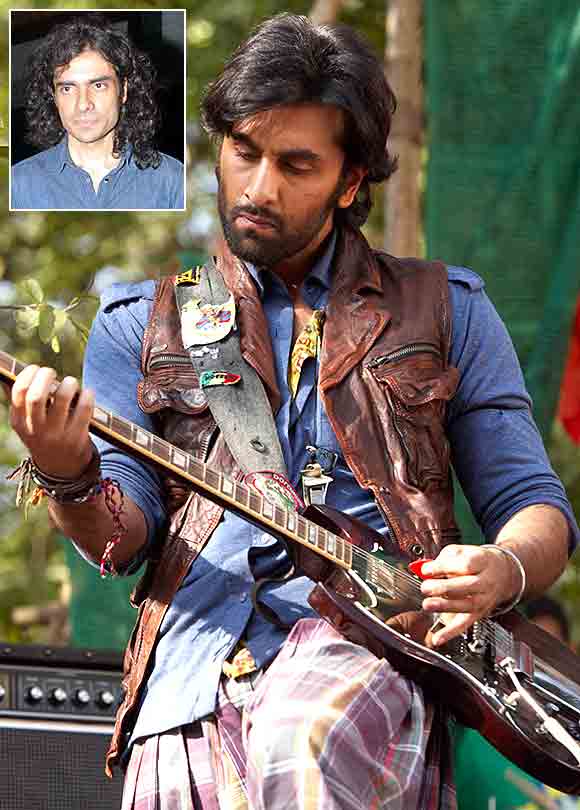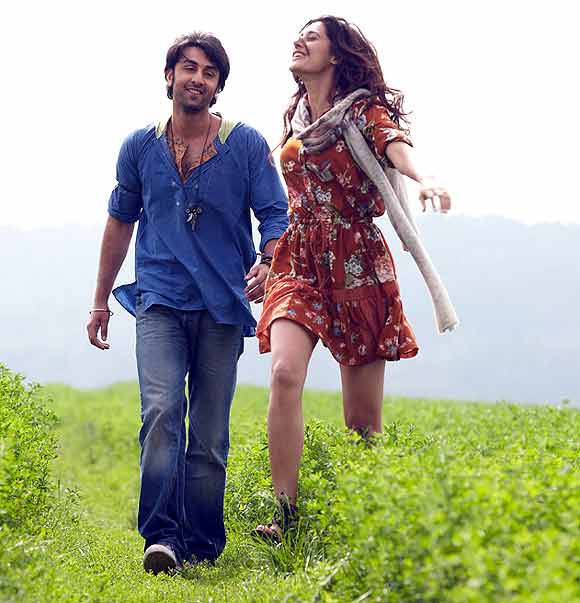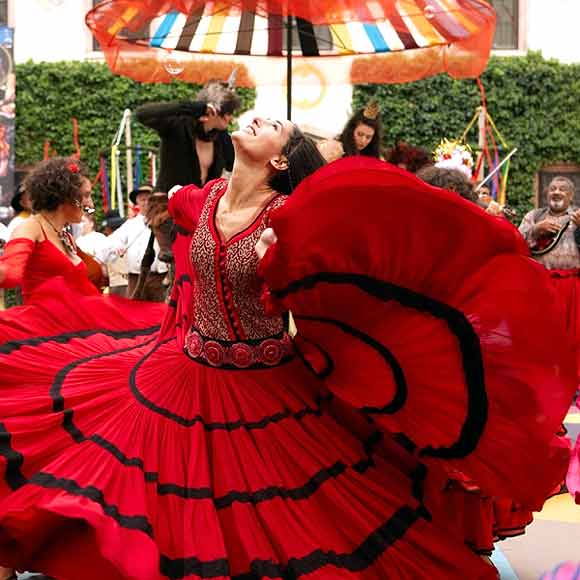 | « Back to article | Print this article |
'I am keen to find out how far Rockstar reaches'
All things considered, writer-director Imtiaz Ali is most thrilled by the fact that Rockstar has evoked wildly different reactions, "a mix of thousand different things."
Every person who Imtiaz has met so far has come up with his/her own unique interpretation of his ambitious musical.
Imtiaz himself, however, is of the view that he is never fully satisfied with any film. "I usually feel that there's always something that I could have done better, that I could have done things differently," he says. As Rockstar continues to be the talk of the town, Imtiaz speaks to Shaikh Ayaz from Delhi:
What are some of the best or worst reactions you have heard about Rockstar?
It's heart-warming that the film has reached out to such a wide audience. What I am thrilled by is that people have had a very individual reaction.
Two people who might have gone to watch the movie together have somehow come back with a different opinion about it; in some cases even diametrically opposite reactions.
Someone said to me that it seems like a dream he has had and that it keeps coming back to him. It's these kinds of unique reactions that I look forward to than the standard response that the film is good or bad. So far with Rockstar it has not settled down to one thing -- that this is the broad picture, that this is what Rockstar is about.
'I'm really keen to find out how far Rockstar goes'
Why do you prefer such individual reactions over collective opinion like it happened in the case of Jab We Met which was unanimously liked by everyone?
You know what, when Jab We Met was released it did not have the kind of reaction that people think it had. I am its director and I was there, looking at things clearly and I remember that it was not as fully and instantly popular as it is in our memory somehow.
In terms of money, Jab We Met was not hugely successful. It didn't have an opening even one fifth of Love Aaj Kal or one tenth of Rockstar. But over a period of time, people have started watching it on DVD and on television and it grew.
What I learnt from that is that a movie takes a long time to really show its effect. How long we don't know. For instance, Sholay is still growing. My daughter who was born 30 years after the release of Sholay knows its dialogue by heart. Jab We Met grew like that and Love Aaj Kal is going that way. I am really keen to find out how wide, deep and far Rockstar reaches.
Are there friends whose opinion you count on? What are their observations, insights about Rockstar?
There's a whole group of people that give me honest feedback. I am lucky to have friends who are real. Some of them think highly of me, so they feel almost a sense of responsibility to talk to me and tell me about my films -- that includes my parents, Anurag Kashyap, my brother (Sajid) who is a writer.
Each one of them has an individual opinion and they are all equally valid. I feel that this set of people have really liked the film this time and although each one of them have certain criticism and observations I think the collective opinion is very warm in this group.
'Jab We Met was not hugely successful in terms of money'
Where do you get inspiration for your characters? Your films are certainly not autobiographical.
I know what you mean. It's usually people around me who inspire me but my characters don't directly look like a real person who I know -- that never happens. My stories come from what I see around me.
It's incredible how much your characters actually travel. Most of your films have stories set in different cities. In Rockstar, Ranbir spends time in Delhi, Kashmir and Prague. Where does this sense of travel come from?
From my own love for travel. I fell in love with travelling ever since I was young and spent a lot of time meeting new people while I was in transit. Then, I spent time in places like Delhi, Jamshedpur, Patna and now of course, Mumbai because of my work.
'I am beyond criticism, appreciation'
Do you set your stories in North India because you are familiar with the culture and language?
I have often tried to think about that and one of the reasons is that in the north of the country Hindi is spoken better. Let's not forget we are making films in Hindi for the Hindi-speaking audience. If I have to set a film in Mumbai and if I have to be real about it I have to compromise on Hindi.
Then the regional language comes in and so does English and it becomes another language. But if you are in Delhi then you have the ability to use the language in a more effective manner.
Why do you emphasise so much on language and words?
Language is an important part of cinema and I feel you need to be close to the language that people speak in a particular geography. I am not overtly conscious of the fact that the language needs to be proper all the time.
'I don't have a plan for the first time in years'
Where does Rockstar take your career now?
I don't know. I don't have a plan. For the first time in years I don't have a plan and I don't have a story that I am getting into. Whatever is to emerge from here will have to emerge from zero. I have no idea what it can be.
Is Rockstar your most personal film to date?
Yes, I would say that.
Is Socha Na Tha your most under-rated work?
(Laughs) That is for you to say.
Are you creatively satisfied with Rockstar?
Whether my film has met with craze or criticism I am never fully satisfied with my work. I am actually beyond criticism, beyond appreciation and there's self analysis. I usually feel that there's always something that I could have been done better, that I could have done things differently.




